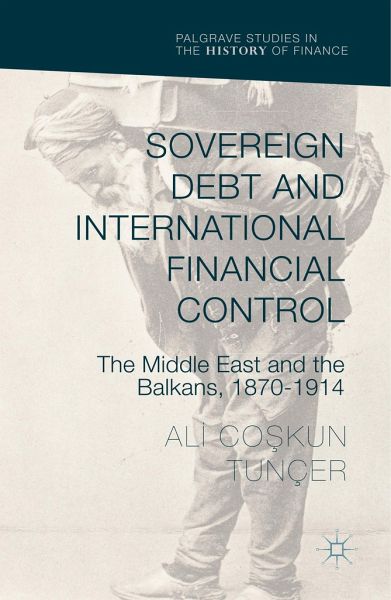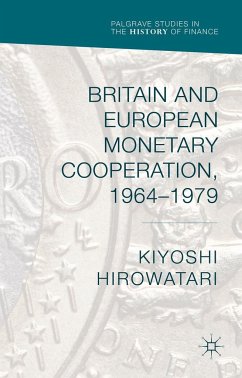
Sovereign Debt and International Financial Control
The Middle East and the Balkans, 1870-1914
Versandkostenfrei!
Versandfertig in 6-10 Tagen
107,99 €
inkl. MwSt.

PAYBACK Punkte
54 °P sammeln!
This book revisits an important chapter of financial history in the Middle East and the Balkans from 1870 1914. During this period, capital flows in the form of sovereign debt increased rapidly throughout the region. The spiral of heavy government borrowing eventually culminated in defaults on foreign obligations in the Ottoman Empire (1875), Egypt (1876), Greece (1893) and Serbia (1895). In all four cases, introducing international financial control over the finances of the debtor states became the prevalent form of dealing with defaults. The different cases of international financial control...
This book revisits an important chapter of financial history in the Middle East and the Balkans from 1870 1914. During this period, capital flows in the form of sovereign debt increased rapidly throughout the region. The spiral of heavy government borrowing eventually culminated in defaults on foreign obligations in the Ottoman Empire (1875), Egypt (1876), Greece (1893) and Serbia (1895). In all four cases, introducing international financial control over the finances of the debtor states became the prevalent form of dealing with defaults. The different cases of international financial control became increasingly refined and they marked important milestones in the evolution of the global governance of sovereign debt before 1914. For the defaulting states however, the immediate impact of international financial control was infringement of sovereignty. The extent of international financial control and the borrowing capacity of debtor states varied in each case as well as the degreeof resistance towards it. This book documents the characteristics of international financial control in a comparative perspective. It relates sovereign debt, default and international financial control to political and fiscal systems, and raises questions about the tension between national sovereignty and global capital. It sheds light on the impact of international financial control on the long-term credibility and fiscal capacity of the debtor states in question. The author demonstrates that the governments' decisions to borrow internationally, and their attitudes towards international financial control, were heavily influenced by domestic political and fiscal factors.














